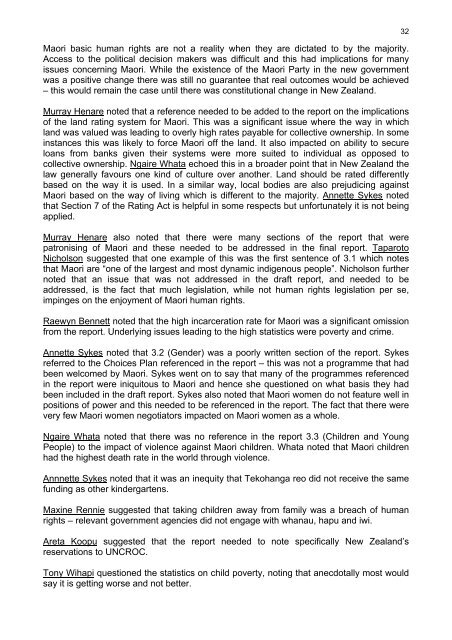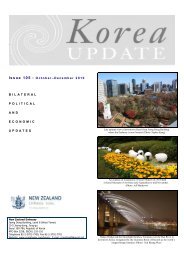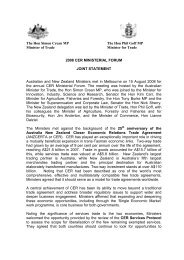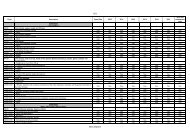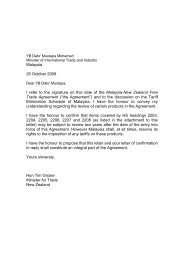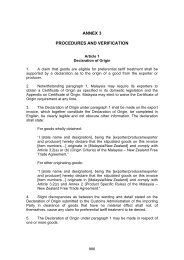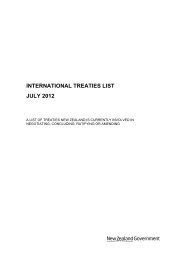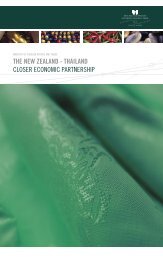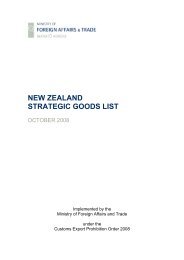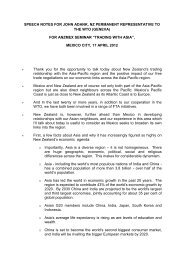New Zealand's National Universal Periodic Review (UPR) Report ...
New Zealand's National Universal Periodic Review (UPR) Report ...
New Zealand's National Universal Periodic Review (UPR) Report ...
- No tags were found...
Create successful ePaper yourself
Turn your PDF publications into a flip-book with our unique Google optimized e-Paper software.
Maori basic human rights are not a reality when they are dictated to by the majority.Access to the political decision makers was difficult and this had implications for manyissues concerning Maori. While the existence of the Maori Party in the new governmentwas a positive change there was still no guarantee that real outcomes would be achieved– this would remain the case until there was constitutional change in <strong>New</strong> Zealand.Murray Henare noted that a reference needed to be added to the report on the implicationsof the land rating system for Maori. This was a significant issue where the way in whichland was valued was leading to overly high rates payable for collective ownership. In someinstances this was likely to force Maori off the land. It also impacted on ability to secureloans from banks given their systems were more suited to individual as opposed tocollective ownership. Ngaire Whata echoed this in a broader point that in <strong>New</strong> Zealand thelaw generally favours one kind of culture over another. Land should be rated differentlybased on the way it is used. In a similar way, local bodies are also prejudicing againstMaori based on the way of living which is different to the majority. Annette Sykes notedthat Section 7 of the Rating Act is helpful in some respects but unfortunately it is not beingapplied.Murray Henare also noted that there were many sections of the report that werepatronising of Maori and these needed to be addressed in the final report. TaparotoNicholson suggested that one example of this was the first sentence of 3.1 which notesthat Maori are “one of the largest and most dynamic indigenous people”. Nicholson furthernoted that an issue that was not addressed in the draft report, and needed to beaddressed, is the fact that much legislation, while not human rights legislation per se,impinges on the enjoyment of Maori human rights.Raewyn Bennett noted that the high incarceration rate for Maori was a significant omissionfrom the report. Underlying issues leading to the high statistics were poverty and crime.Annette Sykes noted that 3.2 (Gender) was a poorly written section of the report. Sykesreferred to the Choices Plan referenced in the report – this was not a programme that hadbeen welcomed by Maori. Sykes went on to say that many of the programmes referencedin the report were iniquitous to Maori and hence she questioned on what basis they hadbeen included in the draft report. Sykes also noted that Maori women do not feature well inpositions of power and this needed to be referenced in the report. The fact that there werevery few Maori women negotiators impacted on Maori women as a whole.Ngaire Whata noted that there was no reference in the report 3.3 (Children and YoungPeople) to the impact of violence against Maori children. Whata noted that Maori childrenhad the highest death rate in the world through violence.Annnette Sykes noted that it was an inequity that Tekohanga reo did not receive the samefunding as other kindergartens.Maxine Rennie suggested that taking children away from family was a breach of humanrights – relevant government agencies did not engage with whanau, hapu and iwi.Areta Koopu suggested that the report needed to note specifically <strong>New</strong> Zealand’sreservations to UNCROC.Tony Wihapi questioned the statistics on child poverty, noting that anecdotally most wouldsay it is getting worse and not better.32


